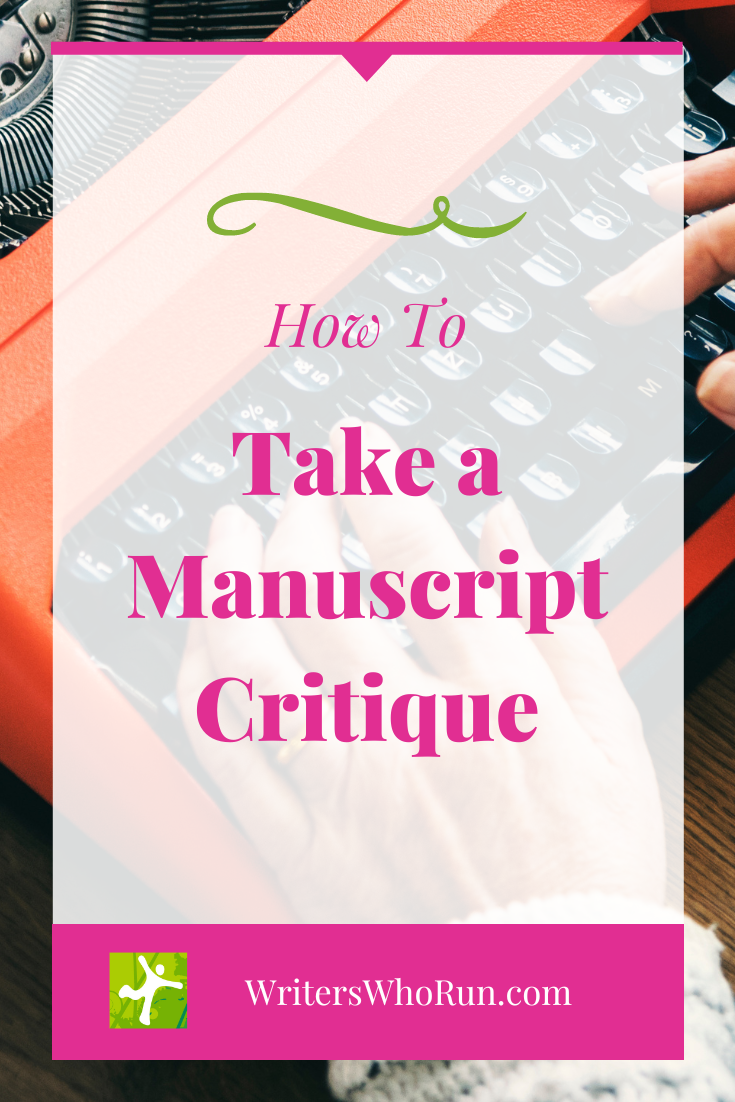|
Not all critiques are the same. Sure, it’s one person’s feedback – their opinions, thoughts, and suggestions, ideas to make your writing better and your story stronger. But what if you disagree? What if you don’t know how to take their advice? Or if you even should? How do you implement feedback from lots of people? Getting a manuscript critique is an essential part of being a writer. Good critique partners for a writer is like a running coach for a runner. In a word? Transformational! Things to Consider When Getting a Critique I’ve shared how to give a good critique and how to overcome the fear of getting a critique, so now let’s talk about once you have a critique, how do you take the feedback and put it to good use? There are two major things to consider.
While the best critiques will come from other writers who write in the same genre as you, the same is true of those who have a similar level of writing experience (or better) as you. I have given and received hundreds of critiques and while all levels of experience are valued and provide fresh perspectives, the times I have grown the most are when the people giving me critiques have had more experience or were further along the writing journey than I was. The Purpose of a Manuscript Critique Often, writers seek feedback on their work to see how good their writing is. But the real reason you should get a critique is to learn how to become better. That only happens when people point out your faults and weaknesses. So if you want a good critique, be prepared to hear some harsh (not hateful) feedback in the process. More on that later. For now, let’s talk about the real purpose of getting feedback on your manuscripts. How does it help you become a better writer?
Secondly, manuscript critiques should provide encouragement. This doesn’t mean that every word should be a glowing review of your language prowess. On the contrary, it means that they mix positive and negative feedback and cheer you on to keep going. Their words encourage you to work through your story’s problems and work to make it better. A critique should never berate you, belittle you, put you down, or say hateful things to you. Negative feedback can also lift you up when delivered with a little bit of encouragement What is Good Feedback? Writers want good feedback, not feedback that’s all good. I touched on this in the last section with mixing up positive and negative feedback. While feedback that’s all good is what some writers may want, it won’t help. That’s when someone tells you, “It’s good. I like it. Keep going!” with NO ideas on where or how to improve your work. But good feedback is when someone comments on your manuscript in such a way that will help you make it better. The following is a list of things someone might comment on for your story.
So if people are pointing out “bad” things about your writing, that’s GOOD FEEDBACK! Craft vs. StoryBut honestly, the BEST feedback is when someone looks at your story and the plot, not just your writing style and individual sentences. When you ask the right questions, you’ll get better feedback. When someone gives you feedback about your writing, it focuses on craft. Things like spelling, grammar, sentence structure, syntax, nouns, verbs, etc. But when someone gives you feedback about your story, you want to hear about character, plot, setting, conflict, emotion, relationship, actions, etc. Ask your critique partner or beta reader to mark any time they get confused. That could be any of the following.
Ask them to note any phrases or sentences they love, along with words that could be cut to make it tighter. But just know that as you continue to revise, even those sections that you subsequently edited will continue to change and improve. After all, that’s the whole goal. To improve your story. The writing will follow. And that, my friend, is how you take a critique. Happy writing! Keep writing, keep running. XO, Christie :) Comments are closed.
|
Christie Wright Wild
Founder, Writers Who Run Creator, Plot Like a Novelist Books
My Dandelion Wish Journal: A 5-Year Guided Nature Journal
101 Fun Creative Writing Exercises: Become a Better Writer in 14 Minutes a Day Categories
All
Archives
October 2023
|





 RSS Feed
RSS Feed